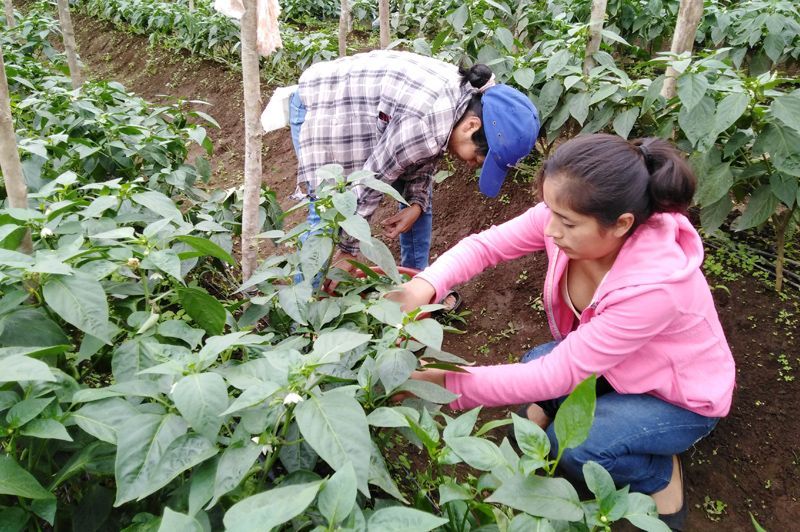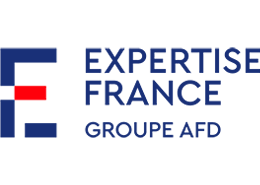"Women are in a vulnerable situation in the face of climate change, and even more so if they are part of indigenous populations", Douglas Benavidez, coordinator of the Climate-Smart Family Farming Project.
The Climate Smart Family Farming for Resilient Food Production (AFCIPRA) Project, which is carried out through EUROCLIMA+'s Resilient Food Production thematic sector, aims to produce food in a resilient way, under an approach for sustainable water resource management by local organisations and producing families. As part of the activities promoted in this project, a series of training events were held related to the mainstreaming of the gender approach, and the formulation and implementation of a gender strategy.
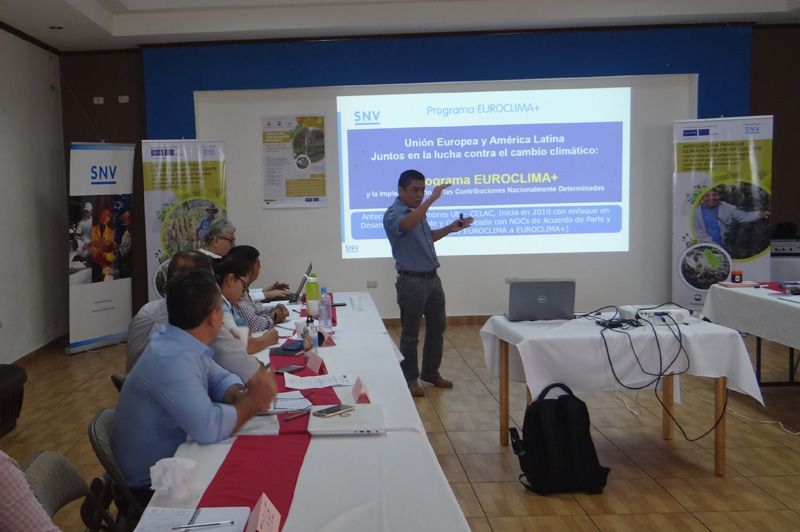
The interest of the AFCIPRA project in incorporating the gender perspective in the above-mentioned actions arises from the recognition that rural and indigenous women suffer from a greater vulnerability to climate impacts, while at the same time playing a fundamental role in achieving food security for their families. Thus, the project explored and used the content of the Toolkit for Mainstreaming a Gender Perspective in Climate Action Projects, which was shared for validation during the workshop to launch the sector's projects for resilient food production.
This tool was developed by the German Society for International Cooperation (GIZ) GmbH for the EUROCLIMA+ Programme during its focal role for gender in the Programme, and it has sections designed to provide guidance to projects in the six sectors supported by the Programme to incorporate gender considerations into their actions.
This tool will soon be published as part of the programme's Thematic Studies series. Thus, the content of the toolkit was used by AFCIPRA to ensure a better approach to gender in project activities. The learning acquired from its use and training processes on the subject generated several specific actions within the project.
Below is a summary of interviews conducted with Eng. Douglas Benavidez, Project Coordinator, and Dr. Tania Najarro, Gender Consultant.
The AFCIPRA project supports the active participation of 272 women in the climate-smart agricultural activities it promotes in the areas of coffee, livestock, basic grains, honey, and food security as a tool for reducing the triple vulnerability faced by women.
What was the motivation for the Climate-Smart Family Farming Project (AFCIPRA) to include the gender perspective in its activities?
Douglas: Taking into account that the project is being developed in a territory with municipalities whose population is 95% indigenous Lenca people and where the participants are about 31% women, it was necessary to have an Action Plan that included the gender perspective to address the specific needs of this population.
Climate change adaptation measures for truly resilient food production must prioritise vulnerable groups, and it is women producers, and even more so indigenous women, who are the most vulnerable groups in this climate reality.
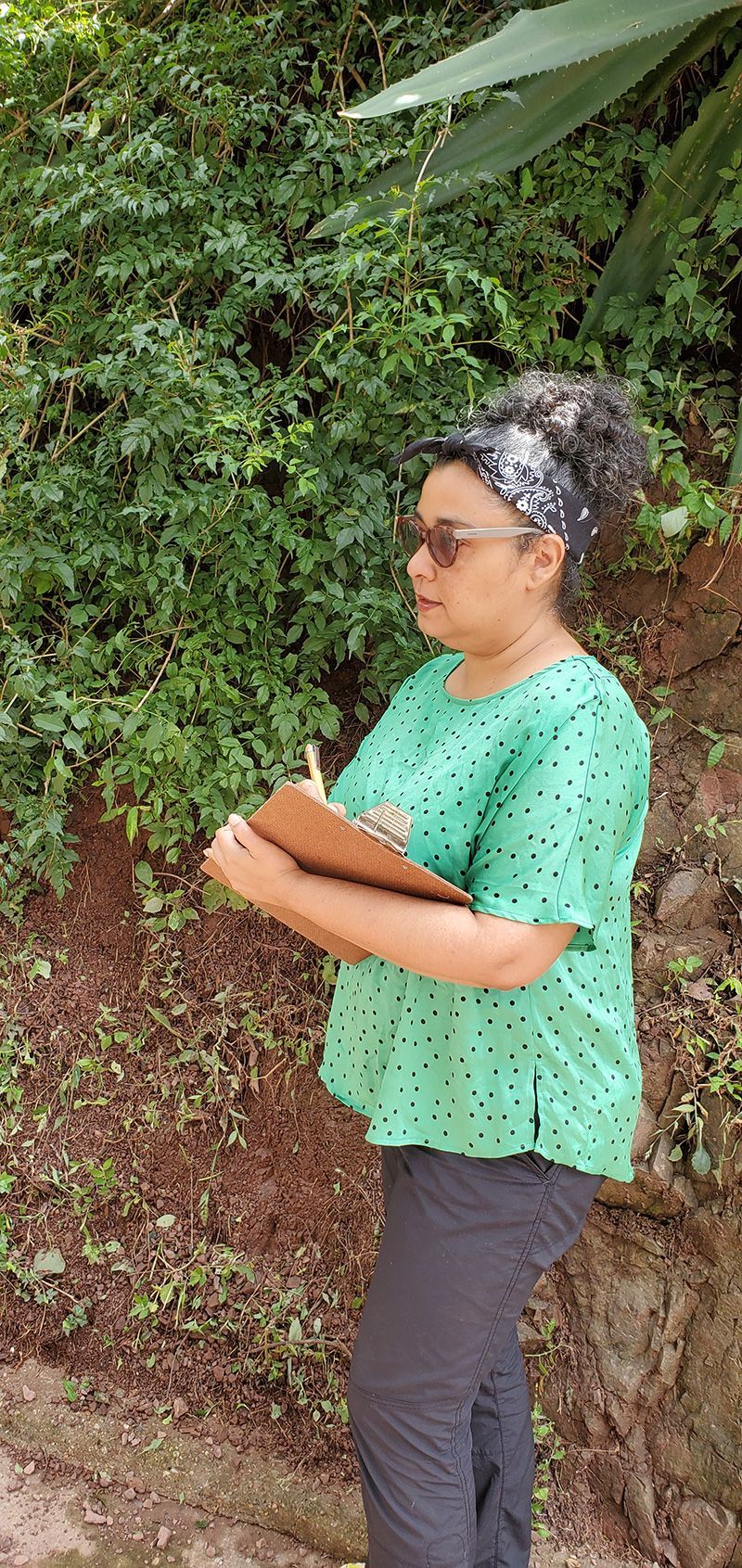
Where did the idea come from to explore the content of the Gender Toolkit presented by EUROCLIMA+ to replicate it in the project?
Tania (see photo): Faced with the challenge of building resilience by addressing the triple vulnerability: climate change, poverty, and the gender gaps faced by indigenous and non-indigenous women, the need arose to explore the content of this material that EUROCLIMA+ was making available to the projects it was funding. The toolkit helps us to ensure that the gender issue is better addressed within projects. We started by analysing the degree of integration of the gender approach in the project.
This process led us to identify which activities did not yet clearly show the differences and needs of women and men regarding their participation in the project. For example, knowing the type of material that women prefer for training allows them to be better included in the training process.
It is essential to know their conditions and needs. Only in this way will we succeed in reducing the gap that traditionally exists between men and women in accessing the various training opportunities. One of the tools that should be highlighted is the use of the concepts of degrees of integration.
This tool allows us to identify and make visible activities that can change power inequalities and social structures. This is what is called Transformative Gender Activities. To cite an example, a process where we promote the increased participation of women in community organisations. In our project, Women's Self-Management Groups (Spanish acronym GAG) have been formed with the aim of economically, socially and politically empowering women in the communities.
Could you tell us to what extent some of the guides presented in the Toolbox shared by EUROCLIMA+ were integrated?
Tania: The information provided to us was used in several parts of the analysis process that was done in this project. We used gender-inclusive social mapping, guiding questions to identify gender actions, and elements to take into account in progress or monitoring reports.
In addition, we conducted a baseline review (BLR), a comparison of reports and commitments with EUROCLIMA+ identifying possible information gaps for the monitoring system. Based on this analysis, we made recommendations to complete the information and make the groups of participants more visible.
We conducted several interviews with community women, producers, and leaders. We also identified key elements that generate gaps between men and women, which is very important as it allows us to establish strategies to reduce these gaps. For example, the case of water recycling in the homes for the vegetable gardens allows women to have a key resource for production such as irrigation; an activity that traditionally only men had because they were considered to be in charge of the irrigation systems for production.
Another result was that we identified women's associations and local support entities for them, which allowed us to add partnership activities that would enhance the Action from a gender perspective and activities aimed at sustainability within the project.
In the evaluation of the Action's activities, we identified the current level of gender and established various strategies, recommending gender activities for each line of work.
One of the cases in which it was possible to integrate the different degrees of gender focus was in the implementation of climate-smart family farming practices, here we note a greater potential for female participation:
- We saw that participating female-headed households were barely visible and we had to highlight this.
- At the beginning of the project we observed little participation of women producers in the socialisation stage. Therefore, through community informants we were able to identify that women see the production in the gardens as their own, since they have control over both production and access to food for the family, as well as possible earnings. This situation led us to strengthen this line of work.
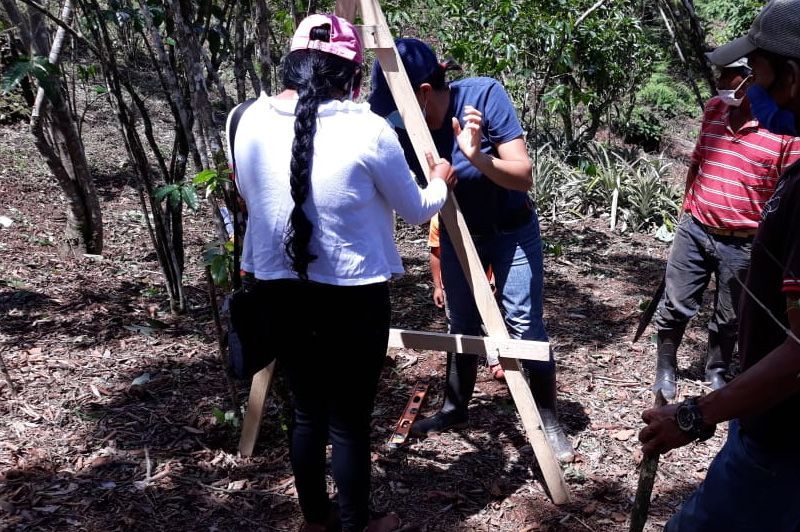
In addition to these efforts to raise the profile of women and close gaps, we are carrying out specific training activities on programming crops in the garden in order to participate in market days, complementing support for the gardens with the integration of medicinal plants that are of interest to Lenca women, as well as facilitating water harvesting systems and/or recycling systems that allow women to integrate themselves from their space into the production of resilient foods.
Key empowerment spaces such as the Self-Management Programme (GAG) and the identification of spaces for women's participation in legal mandates in basin management bodies were highlighted. Finally, the analysis of the progress and monitoring system with the guiding questions from the tool provided by EUROCLIMA+, allowed us to generate specific recommendations to make their performance visible within the same reports. For example, counting the number of female heads of household and the use of materials or means of communication preferred by women such as the radio. This would make it possible, for example, to form alliances with local radio stations through which the project could disseminate Action messages directly to this female sector.
AFCIPRA has developed a gender plan of action for the project. Could you tell us what the differences or actions in this plan are and how they differ from the original design of the project activities? How are you preparing as a consortium to implement this action plan?
Douglas: One of the main differences is that the original formulation included the establishment of alliances with strategic actors. However, the gender action plan makes the importance visible and names possible alliances with local organisations that serve women, such as the Municipal Women's Office (OMM) and with associations of women producers.
The main thing was to make a comparative analysis of the level we were at with respect to the Gender Toolkit. The gender specialist then recommended that the project's technical team be trained to improve the integration of women and female-headed households.
Given the recommendations of the gender study, once the Action Plan was developed, we as a consortium realised the need to have a gender focal point on the project team, who would help us facilitate the implementation of the action plan and monitor compliance.
In addition, key activities were identified by line of work, in which women and female heads of household are better integrated. For example, various technologies that can be installed in the home have been integrated into the water harvesting package, and in this way they have access to water for domestic and productive purposes, such as family gardens.
We are also facilitating processes and creating conditions in areas that have normally been labelled only for men, such as livestock production. In addition, the plan makes visible key actions named by women and specifying their interest, such as family gardens, the integration of medicinal plants, and the re-use of household grey water.
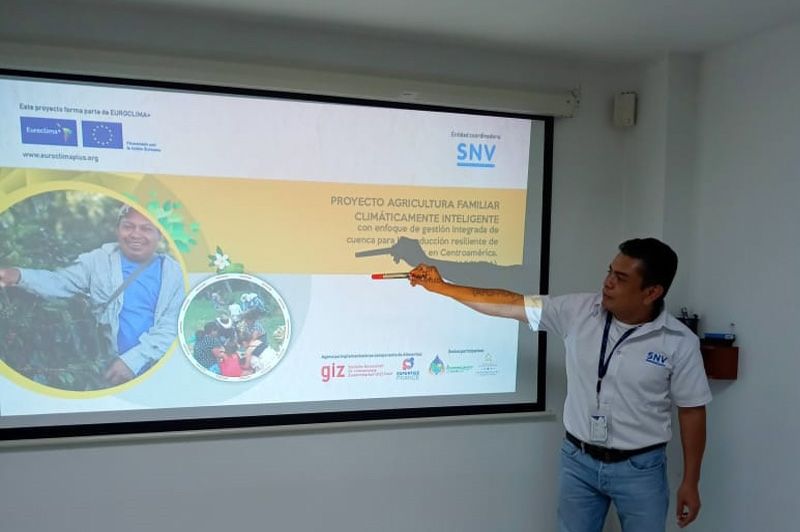
Although the project has one year of implementation, have you detected any benefits or changes at the level of the work team or the families you work with, regarding the integration of women in project activities?
Douglas: I perceive a greater receptiveness, sensitivity, and knowledge in the project team for integrating the gender perspective, this could be verified in the number of female beneficiaries registered in the Baseline from the first cut to the second, from 75 to 272 women.
After the process of strengthening the team's capacities and the formulation of the Action Plan, the participation of female-headed households has become visible and the number of female beneficiaries has doubled. Some 272 women are actively participating in the climate-smart agricultural activities promoted by this project in different areas.
What did we do? The technical team set out to identify female-headed households and included them as beneficiaries for the promotion of productive practices. This process normally takes place in Assembly, but here the team went to the field to identify them.
In the area of Food and Nutritional Security, 27 women have been trained in the integrated management of family gardens. A total of 194 women have been trained in the Farmer Field Schools in basic grain production, sustainable livestock production, and coffee, for which timetables and conditions were provided so that there would be greater participation by women. Five Self-Management Groups have also been set up with 72 women organised.
The regulations of the MiAmbiente Secretariat do not contemplate quotas for women's participation in the formation of the Watershed Councils, so the project facilitated the conditions for women with leadership potential to participate in the election of the councils, which allowed at least 20% of the members of the boards of directors of the councils to be women. These structures are new in the territory and we are promoting, strengthening, and institutionalising them thanks to the project.
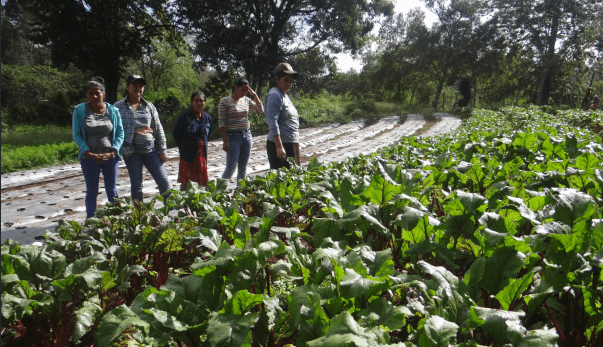
If you could make a recommendation to other food resilience projects on how best to integrate gender considerations into their work, what advice would you give?
Douglas: I would make several points:
- Put on the gender lens from the beginning of the formulation of the Action
- Strengthen capacities in the use of the EUROCLIMA+ toolbox for gender mainstreaming in climate action projects throughout the project cycle.
- Designate a male or female specialist - a gender focal point - in the project or organisation to ensure the implementation of the recommendations derived from the gender action plans built using the guidelines in the toolkit.
About the project: The AFCIPRA project promotes resilient food production, with a gender and cultural diversity perspective, in 600 families, some 3,000 people (31% women) from Lenca indigenous communities and the mestizo population, under a sustainable water resource management approach in the El Venado and Chiflador - Guaralape basins in Honduras.
AFCIPRA has been implemented since June 2019. It is implemented by the Dutch Service for Development Cooperation (SNV) and the Association for the Integrated Management of the La Paz and Comayagua Watersheds, Honduras (ASOMAINCUPACO), as strategic partner the Regional University Centre of the Centre (CURC-UNAH), and as political counterparts the Presidential Office for Climate Change of Honduras (Clima+), and the Ministry of Environment and Natural Resources (MARENA) of Guatemala.
Project contact information:
Project Leader: Douglas Benavidez, This email address is being protected from spambots. You need JavaScript enabled to view it.
Communication Specialist AFCI-PARA Project, SNV: Judit Vanegas : This email address is being protected from spambots. You need JavaScript enabled to view it.
Contact for the Resilient Food Production sector: This email address is being protected from spambots. You need JavaScript enabled to view it.

